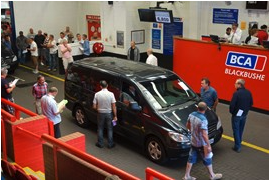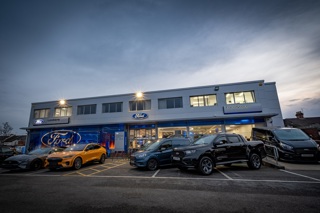Limited supplies of zero-emission electric vans is creating “volatility” in a light commercial vehicle (LCV) sector experiencing a ramp-up in demand, BCA has said.
Despite an uncertain economic outlook, the remarketing giant said that demand for LCV’s had gained momentum through January, with values rising 5.1% (£486) month-on-month across the period as a whole and performance against price guides improved to 102.7% – a rise of 3.9ppts.
And the expansion in London’s Ultra Low Emissions Zone (ULEZ) and clean air zones – including one in Sheffield which launches today (February 27) – are clearly placing added pressure on supplies of electric vehicles (EV).
BCA chief operating officer Stuart Pearson said: “Demand for light commercial stock was frequently intense during January as the LCV sector got back to work after the December break.
“Despite the ongoing economic issues facing every area of commerce – and small businesses in particular – there was healthy appetite across most of the LCV sectors, with the main point of volatility being in the small volume of electric vans defleeted.”
Pearson added: “We’ve seen further acceleration of demand into February with the strength of the used LCV market surprising many.
“With a significant March defleet extremely unlikely, competition for available stock means that used LCV values should remain resilient for some time to come.”
BCA’s weekly reports showed that average used LCV peaked at over £10,600 later in January.
Last week the Society of Motor Manufacturers and Traders (SMMT) revealed that the UK’s LCV manufacturing sector had delivered its best start to a year since 2012.
Hopes of a more plentiful supply of stock to retailers and fleets were rekindled by January’s 35.6% volume growth to 9,299 units.
Stellantis' move to create its European centre for electric van production at Ellesmere Port could also deliver an increase in supplies of zero-emission vans to the UK market.
Among the other LCV brands driving for growth in 2023 is Maxus, which recently expanded its UK operations with the opening of a new Liverpool HQ.



















Login to comment
Comments
No comments have been made yet.